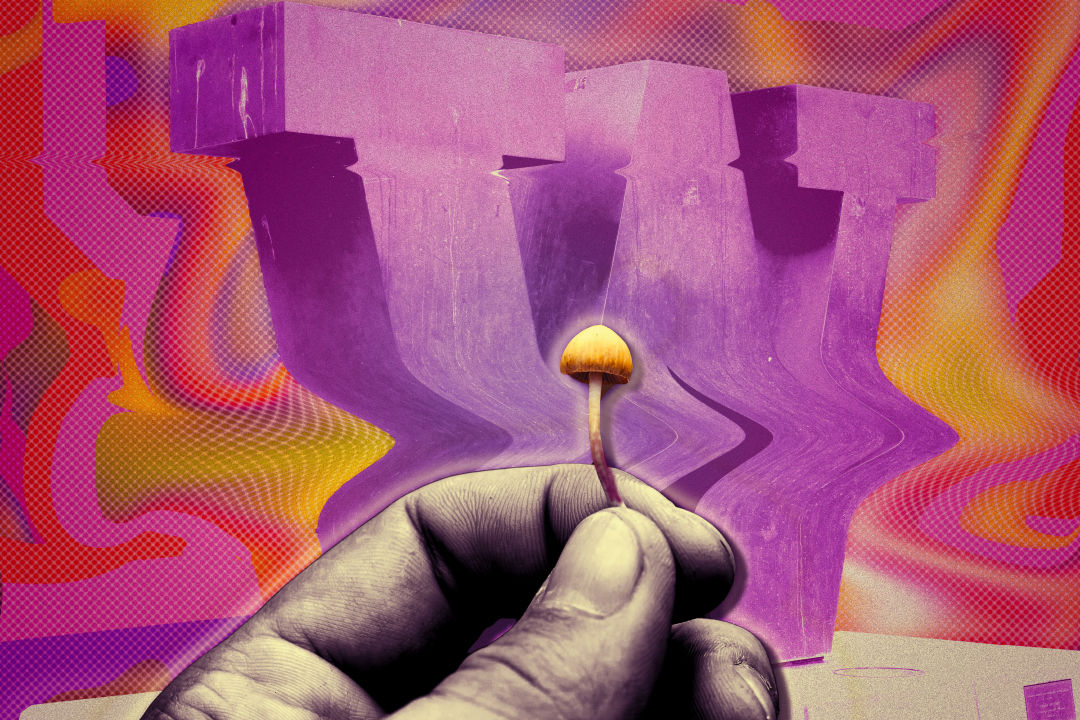
Like most docs, Nathan Sackett acquired into medication as a result of he wished to assist sufferers get higher. The one downside? He selected habit as his specialty, a notoriously troublesome space to see enchancment in.
“It’s a difficult discipline,” says Sackett, an performing assistant professor of psychiatry and behavioral sciences on the College of Washington College of Medication. “Lots of people wrestle with substance use, and our capacity to deal with these use problems may be very, very restricted.”
In an effort to alter that, Sackett is now heading up a research to discover the potential therapeutic worth of the psychedelic compound present in mushrooms, psilocybin. Final yr, Washington legislators handed Senate Invoice 5263, which allowed the state to ascertain an advisory board and job power to offer recommendation and suggestions on creating a regulatory framework for entry to psilocybin. The invoice mandated this present research.
Starting within the fall, the crew at UW will enroll 30 to 40 veterans and first responders who’ve each post-traumatic stress dysfunction and alcohol use dysfunction. Finding out this high-risk inhabitants ought to present helpful insights into psilocybin’s potential results. “Present research haven’t explored sufferers with comorbid situations, however the actuality may be very few individuals simply have a substance use dysfunction within the absence of another problem,” Sackett says.
The trial can be carried out in a managed surroundings, with psychotherapy classes earlier than and after. Two therapists can be current whereas members endure their psychedelic experiences. The group can be cut up in two, with half receiving a placebo within the first spherical. The members who initially obtain a placebo will then be given an opportunity to endure the take a look at therapy.
If the outcomes are promising, the state might resolve to affix Colorado and Oregon in regulating entry to psychedelics.
Though he’s a clinician at coronary heart, Sackett began doing analysis as a result of he felt like he couldn’t sustainably keep within the discipline until he had extra sturdy therapy choices for his sufferers. He says his medical apply retains him motivated to maintain pushing ahead on the analysis aspect. Whereas the jury’s nonetheless out in his thoughts on the applicability of psychedelics for habit, he suspects based mostly on his observations in a medical surroundings that they’ve a number of potential.
Sackett’s principle is that psychedelics might enhance somebody’s motivation to interact in therapy, which is a troublesome endeavor. “Behavioral change is a tough factor,” he says. “I’m tremendous educated in regards to the necessity to floss my tooth twice a day. There’s no cause I shouldn’t, however do I floss twice a day? No. It’s a tall order to control your emotional state, and psychedelics may interrupt that cycle of problem.”
The state funding for this research is useful, because it’s not one a pharmaceutical firm would usually sponsor. Psychedelic psychotherapy additionally doesn’t match properly into our present medical system. It’s primarily two interventions in a single, which complicates the implementation, and every session takes six to eight hours. “Most clinics aren’t arrange with that in thoughts, and most clinics receives a commission by quantity,” Sackett says. “An eight-hour session is daunting for lots of directors and policymakers for the way that may match right into a supply mannequin. I think we’ll provide you with options within the close to future, however we’ll want buy-in from a number of completely different stakeholders.”

Dr. Nathan Sackett
Within the wake of the Covid-19 pandemic, there’s been a rise within the demand for psychological well being companies and rising consciousness of their want. In the newest Nationwide Survey on Drug Use and Well being from the US Division of Well being & Human Companies, 48.7 million individuals aged 12 or older, or 17.3 p.c of the inhabitants, had a substance use dysfunction up to now yr.
With that elevated consciousness has come a higher analysis curiosity in seeing what psychedelics can supply from a therapeutic perspective. To date, probably the most sturdy proof exists for using MDMA for PTSD, adopted by psilocybin for treatment-resistant melancholy. Sackett says psychedelics for substance use is a detailed third, and there’s additionally curiosity in its potential advantages for traumatic mind accidents, dementia, obsessive-compulsive dysfunction, and consuming problems. “We’re nonetheless within the early section of attempting to grasp how they could be efficient and in the event that they’re efficient in any respect,” he provides.
These searching for magic mushrooms to really be magic could also be disillusioned. “There’s a fascinating concept that if one has an issue with substances {that a} substance will remedy that downside, however one of many factors I make with a number of my sufferers is that they’re not a magic bullet,” Sackett says. “There’s not a single intervention that’s going to avoid wasting the day. Psychedelics are solely pretty much as good because the therapeutic course of they exist in.”
Ultimately, combating an habit takes an amazing quantity of labor. But when, as Sackett theorizes, psilocybin can break down among the boundaries in motivation to finishing that work, they could be a part of the answer for his sufferers he’s been hoping for.
Haley Shapley is the wellness columnist for Seattle Met. She’s the writer of Sturdy Like Her: A Celebration of Rule Breakers, Historical past Makers, and Unstoppable Athletes and the forthcoming Evening Owl: Staying Up Late in a World Constructed for Early Birds.

